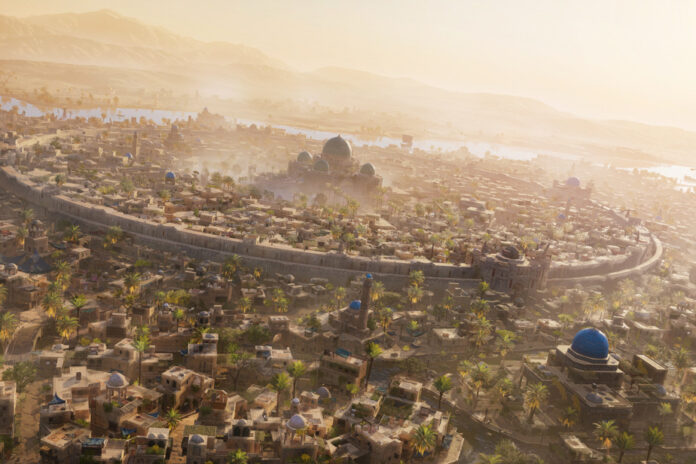Raphaël Weyland: It really makes me happy to hear that, because that was one of our objectives. I think there was an even deeper chord with that one and it makes me all the more happy to hear that comment.
RW: When I learned that that was going to be the subject, I was excited and I’m still excited to this day. I’ve been eating Mirage for two years now, and I still have passion when I talk about it. There is something that touches me deep in my soul, deep in my being. It’s silly to say, but I’ve always liked the periods in history that are less interesting to others. When I was doing Roman history, I wasn’t interested in Julius Caesar, I was interested in less prominent characters. When I did Greek history, it wasn’t for Pericles, it was something else.
RW: This Middle East was a crossroads between cultures, the meeting of completely different people who find things to say to each other and who find things to share. This is one of the first moments where we really have the possibility of having travelers from all continents, from the Atlantic to the Pacific.
Do you know the stories of Kalila wa-Dimna? These are animal fables, originally Indian and transcribed in Baghdad in the 9th century, mixing Greek fables, adding an Arabic and Persian “twist”. And what happens to them? One of the 17th century inspirations of Jean de La Fontaine, he wrote it himself in the introduction.
When I read the stories of Jean de La Fontaine to my son in the evening in Montreal in the 21st century, there is a bit of Baghdad with me.
RW: I think there is no better recreation of the city of Baghdad than this. OK, there are reconstructions of certain parts, but as for the general atmosphere, the possibility of feeling inside the city, I think we did the most we could.
But it’s still a game, we took some liberties. The walls of the round city are higher than in reality, we put mountains near Baghdad, where there are none. It’s not historically accurate, but it’s not a big sacrifice if it helps tell the story better.
RW: We’re in the middle of a game here. There has never been an Order of the Ancients that rules the world for all eternity. There is still something in this struggle between the Order of the Ancients which represents a certain vision of life, a certain philosophy of History based on the need for order and domination, of this conception which it We must not give humans freedom because they are fundamentally evil. Whereas the Assassins represent a brighter, perhaps more naive vision, where justice is needed, where people can make their choices.
Even though we invented these two orders, they represent something very profound.















